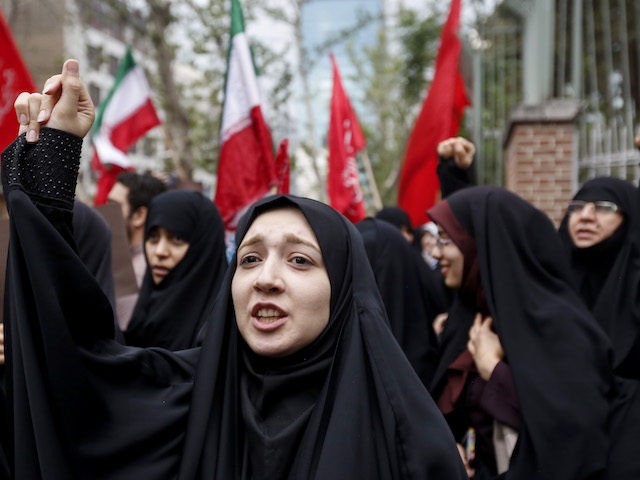The United Nations bizarrely elected Iran, one of the most violently misogynistic governments in the world, to a four-year term on its Commission on the Status of Women on Monday.
The vote elicited swift condemnation from human rights activists.
Iranian women’s rights activist Masih Alinejad denounced the vote as “surreal,” noting Iran “treats women as second-class citizens, jails them for not wearing compulsory hijab, bans them from singing, bars them from stadiums, and doesn’t let them travel abroad without the permission of their husbands.”
U.N. Watch executive director Hillel Neuer called Iran’s election to the council “absurd and morally reprehensible,” marking Monday as “a black day for women’s rights, and for all human rights.”
“Electing the Islamic Republic of Iran to protect women’s rights is like making an arsonist into the town fire chief,” he said.
Neuer found the spectacle of Iran assuming a position of authority on women’s rights so unbelievable he felt compelled to post a video of it online, just to prove it was not a joke:
Neuer’s U.N. Watch called on the U.S. and European Union to condemn the vote, glumly noting at least four of the votes in favor of Iran must have come from Western democracies. The ballot was secret, but U.N. Watch is asking lawmakers from each country to demand their vote be made public.
The vote was only held because the United States insisted on one; otherwise, the process would have been carried out entirely behind closed doors.
“I commend the Biden Administration for forcing the vote, but they should also speak out to condemn the obscene election of Ayatollah Khamenei’s regime to a women’s rights body,” Neuer said.
The Jerusalem Post quoted international human rights organizations to elaborate on Iran’s brutal abuse of women:
Women’s rights are severely restricted in Iran, Human Rights Watch (HRW) reported, saying that they face “serious discrimination” on a variety of issues including marriage, divorce and child custody. Women have been jailed for speaking out in favor of women’s rights, HRW reported.
Domestic violence, marital rape, early and forced marriage are all offenses that Iranian authorities have failed to criminalize, according to Amnesty International. These offenses and other gender-based violence against women remain widespread in the country, according to Amnesty International.
Authorities have also failed to take steps against men who kill their wives or daughters and the legal age for marriage is 13, although men can obtain permission to marry their daughters and granddaughters earlier, said Amnesty International.
Radio Free Europe (RFE) reported on Friday that Iranian women are afraid to walk on the streets because they face constant harassment and threats of physical abuse. RFE noted harassment on the streets is technically illegal, but “the law is rarely enforced and few victims are able to prove that a crime has taken place.”
Iranian opposition groups say the regime has “institutionalized” violence against women, with at least 27 distinct agencies enforcing repressive rules and making thousands of arrests every day. Women who demonstrate against the hijab have been sentenced to five or ten years in prison, while girls as young as nine can be held criminally accountable for not wearing their head covering.
When activists tried to increase the marital age of consent for girls to 16, the bill was struck down because it “contradicted the teachings of Islam.” Women accused of adultery can be executed by the state, or murdered by family members in “honor killings.” If they are lucky, their sentences are commuted to brutal whippings.
The U.N. itself issued a report only last month stating women are “treated as second-class citizens in Iran.”
The U.N. singled out Iran’s policy of child marriage as “unacceptable” and “harmful for the development and well-being of girls.” It also noted the epidemic of domestic violence and faulted the Iranian government for taking “insufficient” measures to “safeguard women and children.”
About 45 days before Iran was elevated to a seat on the U.N. women’s rights commission, U.N. special rapporteur for human rights Javaid Rehman said in March:
Blatant discrimination exists in Iranian law and practice that must change. In several areas of their lives, including in marriage, divorce, employment, and culture, Iranian women are either restricted or need permission from their husbands or paternal guardians, depriving them of their autonomy and human dignity. These constructs are completely unacceptable and must be reformed now.

COMMENTS
Please let us know if you're having issues with commenting.